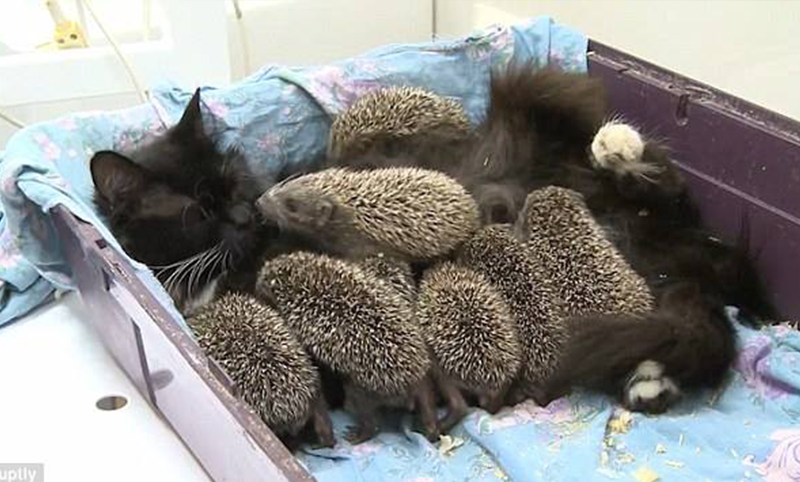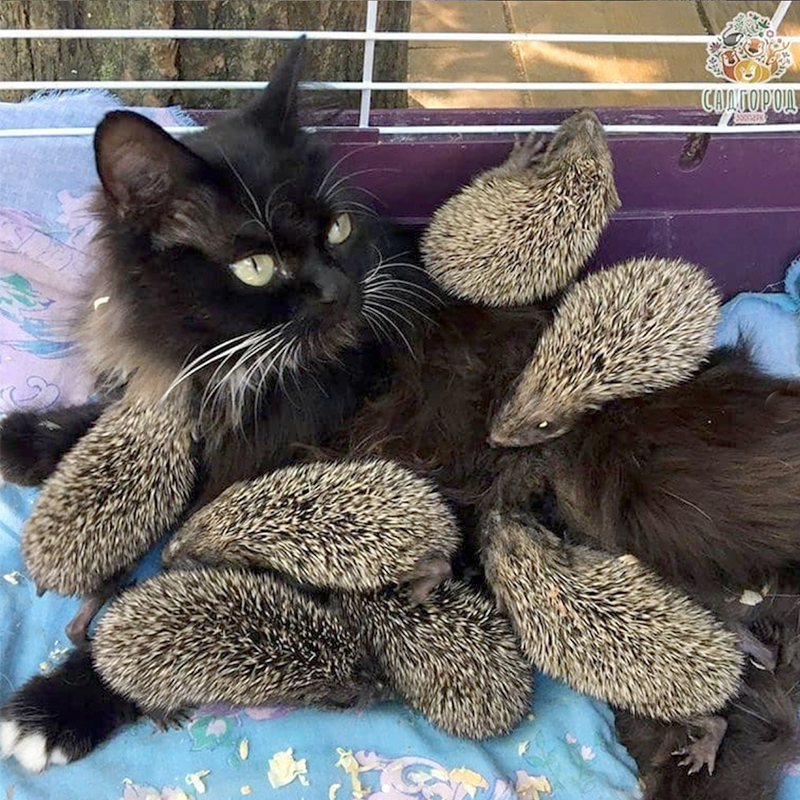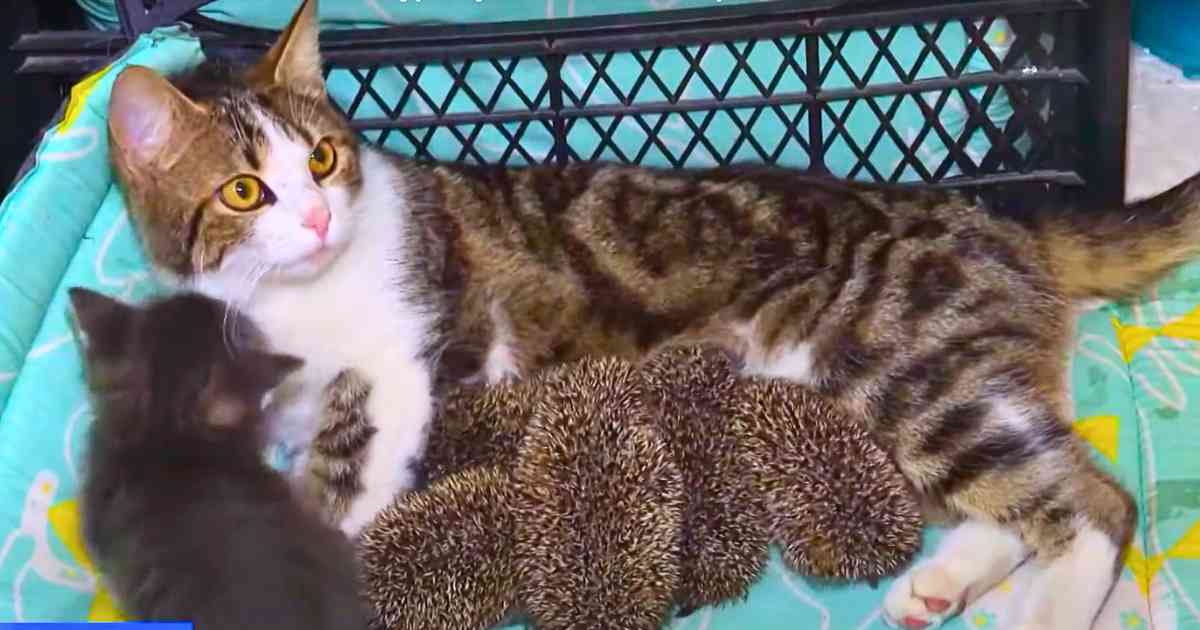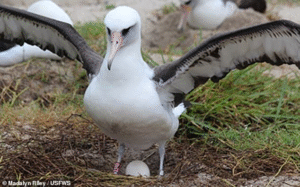Sometimes, animals show a level of kindness that puts humans to shame. At the Sadgorod Zoo in southeastern Russia, a simple shelter cat named Musya made headlines and won hearts worldwide for her astonishing act of compassion. She didn’t just share her space — she became the mother to an orphaned litter of hedgehogs, caring for them as if they were her own.
The Unlikely Family
It all started when tragedy struck: a litter of tiny hoglets, just days old and still blind, arrived at the zoo. Their mother had been killed by a lawnmower, leaving the babies defenseless and in desperate need of care. Zookeepers tried everything to keep the little ones alive — offering milk from bottles, syringes, and saucers — but the hoglets refused every option.
The situation was bleak. Without a mother, these baby hedgehogs would never make it.
But nature has its own way of surprising us.
Also Read: Man Loses 360 Pounds Naturally — Internet Rallies to Support His Next Step
Musya’s Motherly Miracle
Musya, a calm, gentle cat who had just finished raising a litter of foster kittens, happened to wander into the room. The staff noticed she was curious about the newcomers. At first, she just sniffed the spiky little creatures, but soon, something incredible happened — Musya’s maternal instincts took over.
The zookeepers, unsure but desperate, placed the hedgehogs near her. Musya curled around them and began to nurse — even though she was sterilized, she still had milk. The tiny hoglets, who had refused every other source of food, immediately latched on.
Night after night, Musya kept the babies warm, letting them crawl over her, unfazed by their prickly coats. She patiently groomed them, purred as they nursed, and guarded them like her own kittens. For over a week, Musya was their lifeline.

Images via People’s Daily China, Facebook
Why It Worked
Musya’s story might sound like a fairy tale, but such cross-species adoptions, though rare, do happen in the wildlife world. A mother’s instinct can sometimes override the boundaries of species — especially when a baby’s cries trigger the urge to nurture.
Because Musya had recently raised kittens, her body was still producing milk. The zoo’s Instagram shared, “We knew this sometimes happens, but to be honest, we were surprised. Musya is sterilized, but milk appeared.”

Image via Instagram
Instant Stardom
It didn’t take long for Musya’s legend to grow. When the zoo shared photos and videos of the fluffy cat nursing and cuddling her prickly “babies,” the story went viral. Russian news outlets and even international TV picked up the tale. She was soon known as the “Mother of Hedgehogs,” a nod to pop culture’s “Mother of Dragons.”
Visitors flocked to the zoo to meet Musya and her unusual family, hoping to snap a photo or offer a gentle pet.
Full Story: Science Confirms Kelly Brook’s Perfect Body — But the Real Message Is Bigger Than Beauty
Growing Up Hedgehog
With Musya’s care, the hoglets thrived. Eventually, as they grew and learned to eat on their own, they were moved into their own special enclosure at the zoo. They got their own hedgehog lair — full of soft plantings and cozy caves — but the legend of Musya continued.
Sometimes, Musya would still visit her “children,” checking in on them through the glass or sitting nearby as they snuffled and played. For visitors, it was a sight to remember: a cat, calm and regal, watching over a family of hedgehogs that owed her everything.
Not the First Time
Interestingly, this isn’t the first time a Russian cat has stepped up as a foster mom to wildlife. In 2012, another cat named Sonya reportedly raised a litter of four orphaned hedgehogs in a similar situation. Stories like these show that, even in captivity, animals are capable of empathy and compassion that crosses species boundaries.
Beyond Hedgehogs: The Monkey’s Tale
Musya’s story inspired others — including another famous adoption at a Siberian zoo, where a 16-year-old cat named Rosinka adopted an abandoned squirrel monkey named Fyodor. While Rosinka had never had kittens herself, she let the tiny monkey cling to her for warmth, while the zookeeper bottle-fed him.
These stories underscore a remarkable truth about nature: the line between “mine” and “yours” blurs in the face of need.
Visitors and Online Fame
Today, the grown hedgehogs live happily at the zoo, often visited by curious guests and, sometimes, by Musya herself. Zookeepers encourage families to say hello to the “Mother of Hedgehogs” — a real-life legend that has sparked new conversations about empathy and interspecies friendship.
The tale continues to circulate online, inspiring dramatic retellings and animated stories on platforms like Instagram, Facebook, and YouTube.
The Power of Instinct and Kindness
Why does a story like Musya’s matter? Because it shows that care is universal. Whether by instinct, accident, or need, animals can choose connection over indifference. In a world where people sometimes focus on what divides us, Musya’s gentle acceptance is a reminder that kindness knows no boundaries.
The Takeaway
Musya may never know she’s famous. She might not understand the fuss over her odd family. But she knows what it means to care — to warm tiny bodies, feed hungry mouths, and turn loss into love.
And that’s a lesson any species can understand.



